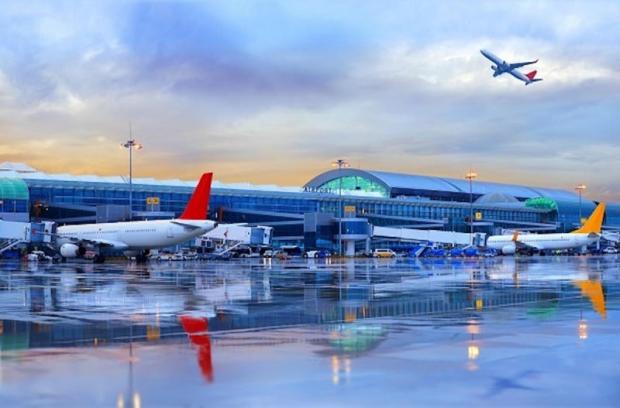Imagine relaxing at a spa prior to a flight to your favourite holiday destination. You board the plane, settle into the seat of your choice and freshen up with a glass of freshly squeezed orange juice, just the way you like it. Soon after, the chef's signature dishes that you pre-selected arrive, paired with the perfect glass of wine.

Photos Courtesy of Amadeus
At the airport, a limousine picks you up and takes you to your hotel where you freshen up before the limo takes you to the 2-star Michelin restaurant where you've always wanted to dine. Afterward, you meet up with friends and attend a concert by your favourite band. Now here's the cool part -- all of this was arranged with a single one-click purchase.
Welcome to the world of digital transformation, where airlines are preparing to tap endless possibilities to take control of their own products and related offerings via a sophisticated retailing channel that will deliver a better experience to travellers.
With the New Distribution Capability (NDC) standard, travel buying will be more convenient and exciting, industry executives say.
First developed by the International Air Transport Association (IATA) in 2011, NDC is a travel industry-supported programme for the development and market adoption of a new, XML-based data transmission standard. The industry-wide effort enhances the capability of communications between airlines and travel agents.
Through improved collaboration among airlines, travel agencies, travel management companies, online travel agencies and search engines, NDC will give service providers the capacity to make optimum use of data to present their offerings in a creative, flexible and personalised manner to travellers.
Travellers, on the other hand, will have a hassle-free, one-stop booking experience. They will also have the ability to add and customise the layers of preferences in their travel bundle and easily compare prices from different companies before making their decision.
"Like many businesses, the travel industry is also facing digital revolution which will require the industry to go through a digital transformation," Gianni Pisanello, vice-president of the NDC-X programme at Amadeus, told Asia Focus in an exclusive interview.
NDC, he said, addresses the industry's current distribution limitations by providing enhanced capability of communications between airlines, travel agents and service providers across various industries.
Prior to the launch of NDC, distribution of offers from third-party service providers in one package were not always possible given the lack of a single agreed communication protocol among various players in the travel industry.
IMPROVED FLEXIBILITY
Unlike the modern retailing system today, he said, the travel industry does not have the flexibility or capability to combine different products, services and payment methods in a way that is most ideal for the customer.
"When you see the retailing experience you have on e-commerce sites such as Amazon, we try to replicate that in the travel industry.
We want the capability to mix different types of products and services and package them to the travellers."
After NDC was launched, all players in the travel industry came together to discuss the most appropriate standard and resolve workflow issues, to the point where it has now matured and is ready for use on a global scale.
"There's going to be more choice and more offers available because of the flexibility enabled by the new system. Customers will have more capability to decide what is more appropriate for them," said Mr Pisanello.
NDC represents an upgrade and complementary offering to the current Global Distribution System (GDS). GDS is a worldwide computerised reservation network created in the 1950s and used as a single point of access for reserving airline seats, hotel rooms and car rentals. Currently, the major GDS systems are Amadeus, Galileo, Sabre and Worldspan.
"NDC is a messaging protocol, which is how the systems talk to each other. It's one part of the equation to help enable the flexibility in communication for various service providers to be able to share information," he said.
"Until last year, it was still in the experimentation phase in which we were trying to understand how to apply it. Now we are entering the industrialisation phase which we want to make into large-scale adoption."
Amadeus has recently achieved dual IATA Level 3 NDC certification as an aggregator and can provide the platform for airlines to retail their products and ancillary offerings in a more sophisticated and creative manner. The platform will also allow rich product descriptions that are responsive to real-time customer requests.
However, in order for NCD to truly take off, there has to be a critical mass of airlines globally investing in this area.
"You need economy of scale. Both airlines and travel agencies are now on board given that they see the disruption coming," noted Mr Pisanello.
TAKING OFF
While larger airlines are expected to be in the vanguard of early adopters, it could take a long time before all players are aligned and on board, he acknowledged.
In Asia, Qantas is in the forefront, with travel agents able to book NDC content alongside other travel attractions, enabling a more personalised travel experience for their clients.
"For many, many years, maybe for the next decade or more, there will be some airlines who will have part of their business on NDC and part of it on their existing infrastructure," said Mr Pisanello. "Over time, once people see more value and the business case is reaffirmed, more people would start to become on board."
By way of example, he noted that it took about 10 years for e-ticketing to be adopted by all industry players.
"Things take time in the travel industry but it's not a negative thing if you look at the size of the industry," he said.
In fact, travel as an industry features an extremely high level of cooperation and collaboration. Code-sharing, where airlines agree to sell each other's tickets, is a good example. There are many areas in industry players can cooperate without actually giving away any competitive advantages to their rivals.
"This is based on a very strong standard and interoperability of the system. … This is something that will continue with NDC," said Mr Pisanello. "While it may take a little bit of time, the benefit will be very large worldwide for all participants and ultimately for travellers."

NDC represents an upgrade and complementary offering to the current Global Distribution System (GDS), a worldwide computerised reservation network created in the 1950s. Photo Courtesy of Amadeus